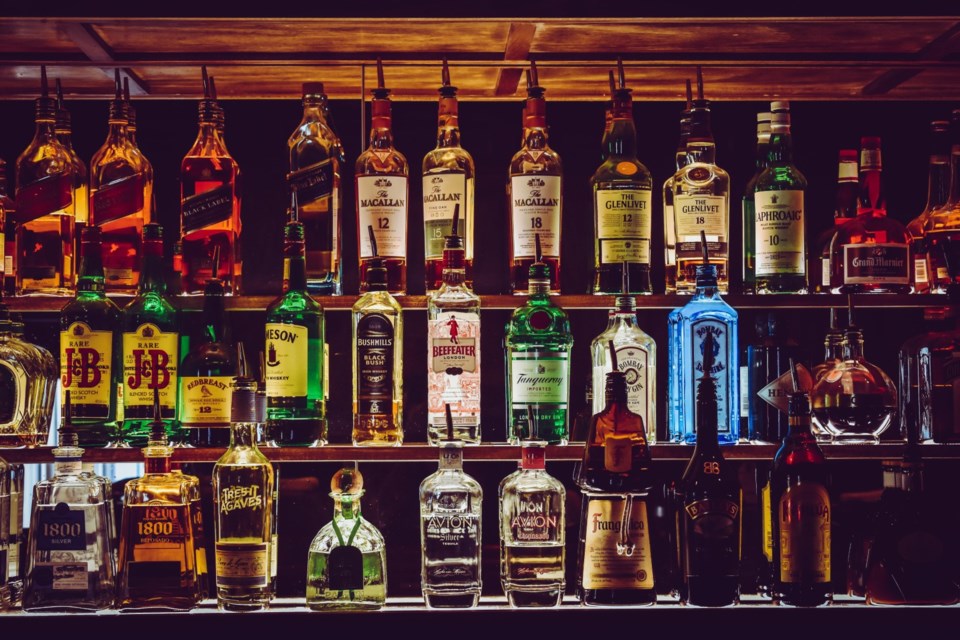Canada is experiencing a notable shift in its alcohol consumption patterns. Quebec’s SAQ is the latest liquor authority to report a consecutive decline in alcohol sales by volume, a trend that mirrors what is happening across the nation. In the most recent fiscal year, alcohol sales by volume have dropped in all provinces, signalling a significant change in Canadian drinking habits.
According to the data, Ontario’s sales fell by two percent, Quebec’s by 2.5 percent, and Alberta saw a steep 15 percent decline, based on estimates and liquor board reports. Provinces such as Nova Scotia (-4.2 percent), Manitoba (-6.7 percent), and British Columbia (-4.9 percent) have also reported substantial drops.
Despite a drop in alcohol consumption, many liquor boards have managed to maintain or even boost revenues by raising prices. However, the downward trend in consumption is undeniable.
Inflation and the cost-of-living crisis are likely the main reasons for this downward trend. As household budgets tighten, consumers are forced to prioritize essentials like food and housing, leaving alcohol as one of the first discretionary items to be cut. Compounding this, federal and provincial taxes on alcohol have increased, making these products less affordable for many Canadians. The combination of rising taxes and inflation is pushing alcohol prices beyond the reach of many Canadians, further driving the decline in consumption.
Another factor contributing to the decline in alcohol consumption is Canada’s evolving demographic landscape. Many immigrants come from cultures where alcohol is consumed in moderation or avoided entirely for religious or cultural reasons. As immigration fuels Canada’s population growth, this influx of immigrants is likely contributing to the reduction in per capita alcohol consumption. The traditional post-work beer or weekend glass of wine may be losing its dominance as cultural diversity reshapes social norms around drinking.
The growing public awareness of the health risks associated with alcohol has also played a role. Over the past decade, numerous studies have linked alcohol consumption to serious health issues, such as cancer, liver disease, and cardiovascular problems. These findings have spurred public health campaigns urging Canadians to reassess their drinking habits. What was once a stigma around heavy drinking has shifted into a more critical view of casual and social drinking. The rise of “Dry January” challenges, sober social spaces, and the increasing availability of non-alcoholic alternatives in bars and restaurants all signal a society that is rethinking its relationship with alcohol.
Legalized cannabis may be another factor influencing alcohol’s decline. Since the legalization of recreational cannabis in 2018, the market has grown rapidly, and some consumers may be opting for cannabis over alcohol. Studies have suggested a “substitution effect,” where alcohol is replaced by cannabis consumption.
The presence of a robust black market for cannabis, which remains cheaper and more accessible than its regulated counterpart, adds complexity to the picture. This underground trade is difficult to quantify but likely contributes to the shifting landscape of substance use in Canada.
As these trends unfold, the rise of the black market for cannabis and possibly other illicit substances indicates that consumption habits are changing in ways that official statistics might not fully capture. Alcohol may simply be losing ground to a broader array of recreational and illicit options.
This evolving landscape presents both challenges and opportunities for policymakers, businesses, and public health advocates. On the one hand, reduced alcohol consumption could ease public health burdens by lowering rates of alcohol-related illnesses and hospitalizations, although the growing use of cannabis brings its own set of public health risks, such as impaired driving, respiratory issues, and mental health concerns. On the other hand, the economic implications of declining alcohol sales cannot be overlooked.
The data indicate that, eventually, alcohol-generated revenues will decline. Provinces that rely on alcohol revenues to fund public programs may need to rethink their fiscal strategies as these revenues decrease, especially as higher taxes continue to make alcoholic products less affordable for Canadians.
Dr. Sylvain Charlebois, a Canadian professor and researcher specializing in food distribution and policy, is a senior director of the Agri-Food Analytics Lab at Dalhousie University and co-host of The Food Professor Podcast. He is frequently cited in the media for his insights on food prices, agricultural trends, and the global food supply chain.
The commentaries offered on SaskToday.ca are intended to provide thought-provoking material for our readers. The opinions expressed are those of the authors. Contributors' articles or letters do not necessarily reflect the opinion of any SaskToday.ca staff.




